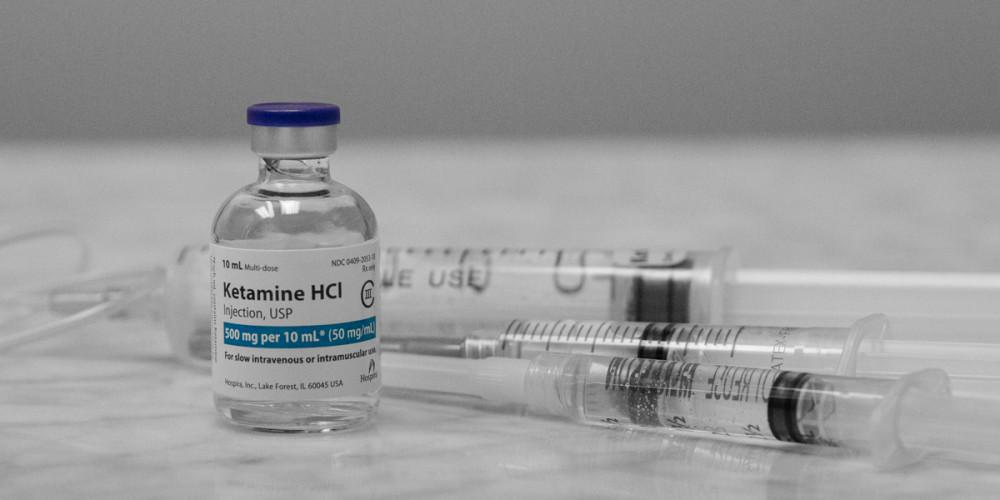Are you or someone you know struggling with bipolar disorder? Are traditional treatments not providing the relief needed to lead a fulfilling life? Enter ketamine treatment, a promising new approach that has shown significant success in managing symptoms of bipolar disorder. In this blog post, we’ll explore what ketamine is, how it works, and its potential benefits for those living with bipolar disorder. So buckle up and let’s dive into the world of ketamine treatment for bipolar.
Contents
What is Ketamine?

Ketamine is a medication most often used in veterinary medicine. It is also used as an anesthetic for humans. When used as an anesthetic, it induces a dissociative state, meaning that the patient appears to be disconnected from their body and surroundings. For this reason, it has been used in situations where a patient needs to be immobilized but remain conscious, such as during surgery or burn treatment. Ketamine can also produce hallucinations and out-of-body experiences.
Ketamine is being studied for its potential to treat a variety of mental health disorders, including bipolar disorder. Research suggests that it may be effective in treating symptoms of depression, anxiety, and post-traumatic stress disorder (PTSD). It has also been used off-label to treat suicidal thoughts or behaviors.
How Does Ketamine Work To Treat Bipolar Disorder?
It is not entirely clear how ketamine works to treat bipolar disorder, but it is thought to work by modulating the neurotransmitter glutamate. Glutamate is a key player in the brain’s reward system and has been implicated in the pathophysiology of bipolar disorder. Ketamine may act to reduce glutamate transmission and thus help to stabilize mood.
The work of ketamine in treating bipolar disorder is still being studied, but it is believed that the drug works by blocking certain receptors on nerve cells. This blockage allows for a decrease in hyperactivity and an increase in relaxation and improved mood. Other theories suggest that ketamine works to reduce stress hormones like cortisol, which can help balance moods. It may also work to decrease inflammation in the brain, which can play a role in bipolar disorder.
Some reports suggested that ketamine could also help with other symptoms of bipolar disorder, such as depression and anxiety. While research is still in its early stages, it appears that ketamine may provide relief from some of the most difficult symptoms associated with bipolar disorder.
Benefits of Ketamin Treatment

There are several benefits associated with the use of ketamine treatment for disorders. Some of these are:
Effectiveness
One of the most important benefits associated with ketamine treatment for bipolar disorder is its effectiveness. Studies have shown that ketamine can be effective in alleviating symptoms of both depressive and manic episodes. It also reduces the number of suicide attempts and hospitalizations related to bipolar disorder.
Safety
Another benefit of ketamine treatment for bipolar disorder is that it is generally safe when used appropriately. While ketamine can have some side effects, such as transient confusion and increased heart rate. These are usually mild and resolve quickly.
Rapidity of Action
Ketamine treatment for bipolar disorder has the advantage of being fast-acting. Patients often experience relief from symptoms within a few hours after receiving an infusion.
Long-Term Treatment Benefits
Ketamine treatment for bipolar disorder has been shown to provide long-term benefits. It is a reduction in the number of episodes and improved quality of life. Studies have also suggested that ketamine may reduce the risk of relapse in people with this disorder
Accessibility
Ketamine treatment for bipolar disorder is becoming increasingly available across the world. It is a more accessible option for those seeking relief from their symptoms.
What Are The Side Effects of Ketamine Treatment?

Other than the benefits there are also potential side effects of Ketamine treatment for bipolar disorder. It is important to discuss these with your doctor before trying this form of therapy.
Common side effects include nausea, vomiting, dizziness, confusion, and drowsiness. In some cases, it could lead to difficulty in concentration and memory problems as well. More serious concerns are an increased risk of urinary tract infections, high blood pressure, and an increase in suicidal thoughts or actions.
These side effects are usually mild and temporary but should be monitored by a doctor. If any of these symptoms worsen or persist, contact your healthcare provider immediately. It is also important to note that ketamine therapy can interfere with certain medications and increase the risk of interactions and adverse reactions.
How Long Does Ketamine Treatment Last?
Ketamine treatment for bipolar disorder is typically short-term, with most people only requiring a few sessions. However, some people may need to continue treatment for longer periods.
The last of the treatment depends on many factors such as the severity of the symptoms, how long it has been present, and how successful the treatment is. Generally speaking, ketamine infusions can provide relief for up to two weeks after a single session. If symptoms return or worsen after that point, additional treatments may be needed.
Approved for use by the FDA in 2020, ketamine treatment for bipolar disorder has been effective in providing relief from symptoms of depression, anxiety, and mania. Approximately 70% of participants in clinical trials have seen improvements after three weeks.
Is Ketamine Treatment Right For Me?

If you are considering ketamine treatment for bipolar disorder, it is important to consult with a mental health professional to determine if this is the right treatment option for you. There are a variety of factors that need to be considered when making this decision, including the severity of your symptoms, your medication history, and your overall health and wellness.
When discussing ketamine treatment, it is important to understand the risks and benefits associated with this kind of therapy. Ketamine can have serious side effects and may interact negatively with certain medications or other substances you are taking.
It is also important to understand that ketamine can be difficult to manage since it needs to be taken regularly for its effects to be sustained. If you have difficulty remembering to take your medication, or if you are concerned about the potential for addiction, then ketamine may not be right for you.
Finally, it is important to consider the long-term effects of ketamine treatment on bipolar disorder. While studies have shown that short-term use of ketamine can help manage symptoms, it is not a cure-all and its long-term effects are still unknown.
By speaking with an experienced mental health provider, you can gain a better understanding of whether ketamine treatment is right for you. Your doctor can provide further information on the risks and benefits associated with this type of therapy, as well as help you to find an appropriate medication plan that will address your unique needs.
Conclusion
Ketamine is an effective treatment for bipolar disorder, with a much lower risk of adverse side effects than other medications. This is particularly beneficial for those who are unable to tolerate the traditional treatments or find them ineffective.
While more research needs to be done, ketamine appears to be a promising option and may provide relief from the symptoms of bipolar disorder and allow patients to regain a better quality of life.
For more information, please contact MantraCare. Anxiety is a common mental health condition characterized by persistent feelings of worry, fear, and apprehension. If you have any queries regarding Online Anxiety Counseling experienced therapists at MantraCare can help: Book a trial Anxiety therapy session


